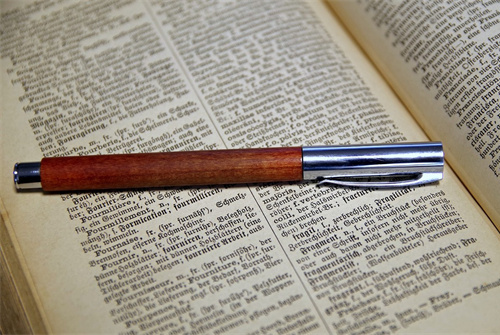【简介】感谢网友“网络整理”参与投稿,这里小编给大家分享一些,方便大家学习。
【第1句】: 英语的九中句子成分
根据英语词汇在英语句子中的地位和作用, 英语句子的成分可分为主语、谓语、宾语、宾语补足语、表语、定语、状语、同位语及独立成分等。其中,主语和谓语是句子的主要成分,一般情况下,一个句子不能缺少这两种成分。
【第1句】: 主语:表示句子所要说明或描述的人或事物,一般由名词、代词或相当于名词的词组或句子充当,置于句首。如:
It's getting cold. 天冷起来了。
Now everything is ready. 现在一切都准备好了。
The teacher is very kind to us. 老师对我们很好。
【第2句】: 谓语:说明或描述主语的动作、状态或特征,由动词或动词短语充当,位于主语之后。如:
Mother bought me a VCR. 妈给我买了一台录像机。
We have finished our work already. 我们已经完成了工作。
【第3句】: 表语:表示主语的身份、性质、状态和特征,一般由名词、形容词、或相当于名词、形容词的词、短语或句子充当,位于连系动词之后,与连系动词一起构成句子的谓语。如:
Be careful! 小心!
He looks very angry. 他看上去很生气。
His job is looking after sheep. 他的任务是看羊。
【第4句】: 宾语:指动作所涉及的人或事物,一般由名词、代词或相当于名词的词组或句子充当,位于动词之后。如:
He wrote many plays. 他写了许多剧本。
She loves swimming. 她喜欢游泳。
【第5句】: 宾语补足语:用来对宾语进行补充和说明,一般由名词、非谓语动词、形容词等充当。如:
He told us to stay. 他叫我们留下。
I've never seen her dancing. 我从未看见过她跳舞。
I found it difficult to refuse him. 我感到很难拒绝他。
【第6句】: 定语:对名词或代词进行修饰、限制或说明,一般由形容词、名词、代词、数词、介词短语、非谓语动词及句子等充当,位置可在所修饰的词之前,也可在所修饰的词之后(详见形容词一章)。如:
It's an interesting story. 那是一个有趣的故事。
Do you have time to help us? 你有时间帮助我们吗?
Who is the woman being operated on? 正在动手术的女人是谁?
【第7句】: 状语:用于修饰动词、形容词、副词、短语或整个句子等,一般由副词、介词短语、非谓语动词短语或句子充当。如:
We like English very much. 我们非常喜欢英语。
Her uncle lives in Canada. 她叔叔住在加拿大。
She was lying in bed reading. 她躺在床上看书。
United we stand, divided we fall. 团结则存,分裂则亡。
【第8句】: 同位语:若两个语法单位指同一个人或事物,并且,句法功能也一样,那么,后一项称为前一项的同位语。如:
This is my friend Harry. 这是我的朋友哈利。
We students should study hard. 我们学生应该努力学习。
【第9句】: 独立成分:与句子其他成分没有通常的语法关系,如插入语、感叹语、呼语等,一般用逗号将它与句子隔开。如:
He's a nice person, to be sure. 肯定他是一个好人。
Strange to say, he did pass his exam after all. 说也奇怪,考试他竟然通过了。
【第2句】: 英语八大句子成分的区别是什么
英语句子成分:
主要成分:主语、谓语、宾语、【表语 汉语中没有此成分】
次要成分:定语、状语、宾补/主补、同位语.
插入语,属于修辞类的功能形式,一般都不作为句子成分看待.
例如:
【To see 主语】【is谓语】【 to believe.表语】
【He 主语】【came to 谓语】【school 宾语】【late again.状语】
【We主语】【 Chinese同位语】【 should try harder谓语】 【to make our country stronger and more powerful 宾语】
to make【 our country 宾语】【stronger and more powerful 宾补】
Jack is a 【wise定语】 man
【第3句】: 英语句子成分
在英文当中,有八大句子成分,分别是:主语、谓语、宾语、表语、定语、补语、同位语、状语。
主语:动词的发出对象
谓语:动词
宾语:动词的承受对象
表语:说明主语的品质、性质、身份、特征和状态,通常在系动词(be/become/feel/sound/turn。)后面
定语:用来修饰、描述主语或宾语,形容词通常做定语
补语:用来补充说明主语或宾语
同位语:即“同等位置”,以一个名词来解释说明另外一个名词或代词。
状语:表示时间、地点、原因、目的、结果、方式、程度等,副词通常做状语。
扩展资料:
举例:
【第1句】:My sister Susan sings very well.
我的妹妹苏珊唱歌很棒。
My—定语
sister—主语
Susan—同位语
sings—谓语
very well—状语
【第2句】:She is Chinese.
她是中国人。
She—主语
is—be动词
Chinese—表语
【第3句】:I painted the wall white.
我把墙漆成白色的。
I—主语
painted—谓语
the wall—宾语
white—补语
【第4句】: 20句英语句子成分分析
【第1句】:The farm covered thousands of acres.
主语the farm , 谓语covered, 宾语 thousands of acres
【第2句】:Don't leave the water running all the time.
否定结构的祈使句
【第3句】:The place is worth to be visited.
主语The place,谓语is,动词不定式to be visited作宾语
【第4句】:Only then did I realiza I was wrong.
only在句首的倒装句
【第5句】:The rest of the apple is rotten.
主语The rest of the apple,谓语is,宾语rotten
【第6句】:I choose to go to work by bus.
主语I,谓语choose,动词不定式to go to work by bus作宾语
【第7句】:There are plenty of restaurants to choose from.
主语There,谓语are,宾语 plenty of restaurants,动词不定式to choose from作补语
【第8句】:I met her by chance.
主语I,谓语met, 宾语her, 状语by chance
【第9句】:I came across an old photo in the drawer.
主语I, 谓语came across, 宾语an old photo, 地点状语in the drawer
【第10句】:The child tried to catch the teacher's eye.
主语The child,谓语tried, 动词不定式to catch the teacher's eye作宾语
【第11句】:I intend to finish the text today.
主语I, 谓语intend, 动词不定式to finish the text 作宾语 , 时间状语today
【第12句】:She looks young considering her age.
主语she,谓语looks,状语young, 状语considering her age
【第13句】:Carry on working while I am away.
祈使句。
【第14句】:To see is to belive.
不定式 to see作主语, 谓语is, 不定式 to believe作宾语
【第15句】:The worker and writer is from Wuhan.
主语The worker and writer, 谓语is,状语 from wuhan
【第16句】:Something has gone wrong with my watch.
主语Something,谓语has gone,状语wrong, with my watch状语
【第17句】:They were struggling to get out of the burning car.
主语they,谓语were struggling, 不定式to get out of the burning car作宾语
【第18句】:She did want to have what is called mobile phone.
主语she,谓语did want, 后面不定式是宾语,其中what is called mobile phone是宾语从句
【第19句】:We think it is necessary to work hard.
主语we,谓语think,后面是宾语从句
【第20句】:Seeking friendship is human nature.
动名词主语Seeking friendship,谓语is,宾语human nature
【第5句】: 英语的句子成分 主语 谓语 宾语 状语 定语 表语 补语 这些叫句子成分
你说的都是句子成分。介词短语也可能作定语、表语、状语和补语,前置修饰语、后置修饰语,既然说修饰多半指定语,这些都是上面特定句子成分的一个实例。如果非要说一个名字,那就是一种用法或者语法功能。同位语也是一种句子成分和用法,通常是对一个已有的成分的解释说明,并不局限于名词。
这样讲太抽象,举例子就好了。
He puts his shoes under the desk. (介词短语作补语)
His shoes are now under the desk.(介词短语作表语)
The shoes under the desk belong to him. (介词短语作后置定语)
He sits under the desk.(介词短语作状语)
His shoes are there, under the desk.(under the desk就是there 的同位语)
看你的疑问,似乎你对这些句子成分是理解的,会用就可以了,并不需要去深究,因为口语里很多都是不在意的,符合语言习惯就好,真正的英语水平体现在表达能力和词汇上。









